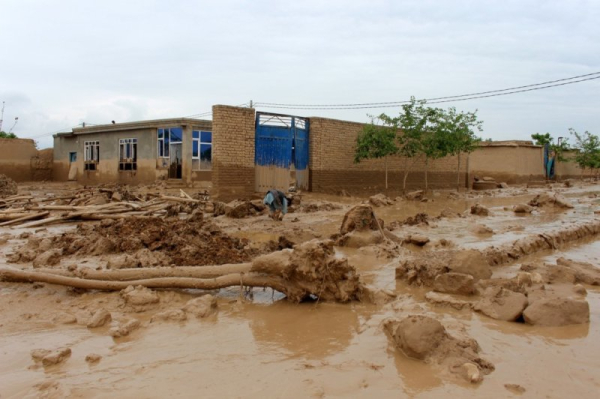
A man stands in the mud after a flash flood in Baghlan, Afghanistan, on May 11, 2024. File Photo by Samiullah Popal/EPA-EFE
Flash floods triggered by heavy rain killed 50 people Friday in Afghanistan’s Ghor province, government officials said.
The Afghan Ministry of Refugees in a post on X Saturday said dozens of people also are missing, and 6,000 houses are partially or totally destroyed. Advertisement
The floods also destroyed hundreds of hectares of farm land, hundreds of bridges and killed thousands of cattle, the ministry said.
In the provincial capital of Firozkoh, some 2,000 shops are underwater, and most roads leading to the city are cut off.
Ghor’s disaster management department declared an “emergency situation” and a need from survivors for shelter, food and water.
Zabihullah Mujahid, spokesperson for Afghanistan’s Taliban government, in a string of posts on X expressed condolences for families of the victims and called on “responsible authorities and orgs to provide all necessary support to alleviate the suffering, ensuring comprehensive assistance and fostering solidarity with affected people.”
“To our benevolent donors, we appeal for assistance in aiding the affected families, and we urge them not to withhold their generosity in this time of need.”
Northern Afghanistan, which includes the provinces of Ghor, Badakhshan, Baghlan and Herat, has suffered severe flooding over the past several weeks. Advertisement
Baghlan was the worst-hit region, and the U.N. World Food Program said the region is still inaccessible by truck.
At least 300 people have been killed in the past several weeks, the United Nations announced, and that number is expected to increase as more reports come in.
The unseasonal rainfall comes after a prolonged period of drought earlier this year.
More than 100 people and over 600 animals died in April from flash floods in Afghanistan and Pakistan.
Last spring, thousands of people in western Afghanistan were killed by a 6.3 magnitude earthquake. The disaster was followed by a string of summer flash floods that killed over 30 people.
Climate analysts warned that the war-torn country, which fell back under Taliban control in 2021, is one of the least prepared countries to deal with the impacts of global climate change.